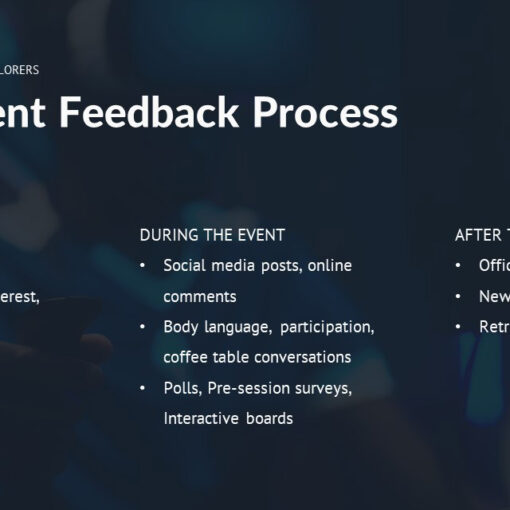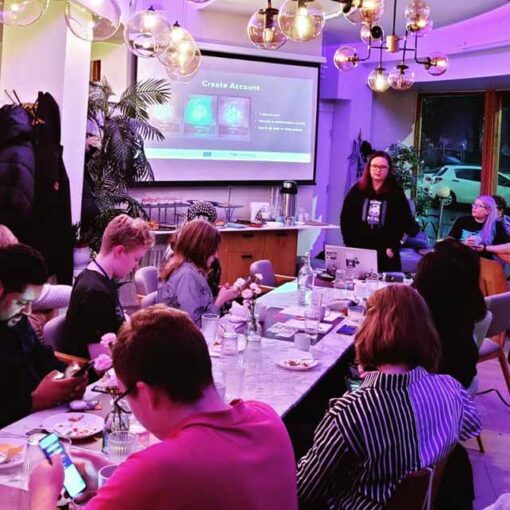Innovation management is a key factor in an organization’s success and maintaining its competitiveness. Innovation management encompasses both the processes and strategies that enable the development and commercialization of new ideas, products, and services. Commercialization is the process of turning an innovation into commercial products or services. Innovation management includes product development and its management and requires creativity and skills that support continuous improvement. Commercialization forms an essential part of innovation management. (Chesbrough 2003; Gans et al. 2019.)
Commercializing ideas ensures that innovations reach the market and generate economic value. In commercialization, it is important to understand the target markets and customer needs, test and develop the product or service before market entry, ensure sufficient funding during the development and commercialization phases, and develop an effective marketing strategy for the product or service launch. Commercialization is a key part of business and economic growth. (Gans et al. 2019.) Without commercialization, product development does not yield the desired new products (Cubero et al. 2021; Datta et al. 2013).

Service design, open innovation & competitive advantage
An example of education commercialization in the cross-national context is the EDUCRO project. It was undertaken to enhance cross-border interaction and cooperation between HEIs and local SMEs in the culture and tourism sectors. It focused on developing and providing international lifelong learning training and assisting companies in creating new products and services. The curriculum development process included:
1. Collaborative Design: Creating educational modules in collaboration with partner universities to ensure they meet international standards and local requirements.
2. Customization: Adapting content to suit the cultural and educational contexts of different countries.
3. Implementation: Delivering the curriculum through online platforms, face-to-face seminars, study visits, and webinars. (Bogdanova et al. 2021; Meltovaara et al. 2021; Vuorela et al. 2021.)
Service design can also be used in curriculum development to foster innovations (Bogdanova et al. 2021). Open innovation processes can also be used in university and industry collaboration. By adopting open innovation practices, universities can enhance research capabilities, support local businesses, and contribute to economic growth. (Brusila-Meltovaara et al. 2024; Laine et al. 2015.)
The target audience is a central element in educational projects. Learn about your target audience and their needs by conducting regular interviews and feedback assessment. (Brusila-Meltovaara & Bogdanova 2021.)
The competitive position and advantage of the developed product should be examined, e.g. barriers to entry to a market, existing tends and/or exiting competition (Porter 2008). Pricing strategy and revenue generation as well as distribution models need to be established (Setiawan et al. 2023; Baker & Passmore 2016; Zhang et al. 2023). Scalability and sustainability of the courses and possible accreditation and the technology and delivery platforms should also be taken into consideration (Samboteng & Kasmad 2024; Tayaben & Kachchhap 2024; Duarte & Vardasca 2023; Bakah et al. 2019; Zancanaro et al. 2017; Wright 2006).
Commercialization of educational products, specifically at the European Qualification levels 7 and 8, can provide universities with additional income and increase university visibility. Level 7 indicates extended practice and is supported by postgraduate diploma education. Level 8 reflects advanced practice and is underpinned by Masters or Doctorate level education. (Coffey & Leech 2018.) For students these courses provide access courses outside of the normal curricula. To professionals they provide access to university level lifelong learning.
Author
Dr. Kristiina Brusila-Meltovaara is a Principal Lecturer at the Faculty of Technology at LAB University of Applied Science. She has long experience in industry as a Finance and HR director, as well as years of experience in lecturing, curriculum development, e-learning, development of teaching and learning materials, as well as commercializing trainings and university services. Current research interests include innovation work, commercialization, leadership and management, ethics, sustainability, and corporate governance and in particular the leadership thereof.
References
Bakah, M. A., Nihuka, K. A. & Anto, A. G. 2019. Fostering the Sustainability and Scalability of Curriculum Innovations Through Collaborative Design. Cited 25 Jun 2025. Available at http://dx.doi.org/10.1007/978-3-030-20062-6_18
Baker, R.M. & Passmore, D. L. 2016. Value and pricing of MOOCs. Education Sciences. Vol. 6 (2), 14. Cited 25 Jun 2025. Available at http://dx.doi.org/10.3390/educsci6020014
Bogdanova, O., Brusila-Meltovaara, K., Iso-Aho, J. & Vuorela, T. 2021. Service Design Experimental Learning in Adult Education. ICERI2021 Proceedings. International Association of Technology, Education and Development. 1438–1441. Cited 25 Jun 2025. Available at https://www.theseus.fi/handle/10024/509106
Bogdanova, O., Brusila-Meltovaara, K., Vuorela, T., Janhila, L., & Iso-Aho, J. 2021. Cross-border experimental E-learning experiences. EDULEARN21 Proceedings. 13th International Conference on Education and New Learning Technologies. 7346–7352. Cited 25 Jun 2025. Available at https://library.iated.org/view/BOGDANOVA2021CRO
Brusila-Meltovaara, K. & Bogdanova, O. 2021. Building International Collaboration: Tips and Lessons Learnt. LAB Focus 7 Dec 2021. Cited 25 Jun 2025. Available at https://blogit.lab.fi/labfocus/en/building-international-collaboration-tips-and-lessons-learnt/
Brusila-Meltovaara, K., Makkonen, P., Siakas, K. & Lampropoulos, G. 2024. Open Innovation Capabilities and Competences. Proceedings of the 19th European Conference on Innovation and Entrepreneurship. Vol. 19 (1). Cited 25 June 2025. Available at https://papers.academic-conferences.org/index.php/ecie/article/view/2487
Chesbrough, H. 2003. The logic of open innovation: Managing intellectual property. California Management Review. Vol. 45 (3), 33–58. Cited 25 Jun 2025. Available at https://doi.org/10.1177/000812560304500301
Coffey, M. & Leech, M. 2018. Introduction to the ESTRO European Qualifications Framework (EQF) 7 and 8: Benchmarking Radiation Therapist (RTT) advanced education. Technical Innovations & Patient Support in Radiation Oncology. Vol. 8, 19–21. Cited 25 Jun 2025. Available at https://www.sciencedirect.com/science/article/pii/S2405632418300271
Cubero, J. N., Gbadegeshin, S. A. & Consolación, C. 2021. Commercialization of disruptive innovations: Literature review and proposal for a process framework. International Journal of Innovation Studies. Vol. 5 (3), 127–144. Cited 25 Jun 2025. Available at https://doi.org/10.1016/j.ijis.2021.07.001
Datta, A., Reed, R. & Jessup, L. 2013. Commercialization of Innovations: An Overarching Framework and Research Agenda. American Journal of Business. Vol. 28 (2), 147–191. Cited 25 Jun 2025. Available at https://doi.org/10.1108/AJB-08-2012-0048
Duarte, N. & Vardasca, R. 2023. Literature Review of Accreditation Systems in Higher Education. Education Sciences. Vol. 13 (6), 582. Cited 25 Jun 2025. Available at https://doi.org/10.3390/educsci13060582
Gans, J. S., Stern, S. & Wu, J. 2019. Foundations of entrepreneurial strategy. Strategic Management Journal. Vol. 40 (5), 736–756. Cited 25 Jun 2025. Available at https://dx.doi.org/10.2139/ssrn.2844843
Laine, K., Leino, M. & Pulkkinen, P. 2015. Open Innovation Between Higher Education and Industry. Journal of the Knowledge Economy. Vol. 6, 589–610. Cited 25 Jun 2025. Available at https://link.springer.com/article/10.1007/s13132-015-0259-2
Leinonen, T. 2022. Lab-lappeenranta-campus–15. LAB Press Images. Cited 3 Sep 2025. Available at https://lut.pictures.fi/kuvat/LAB+Press+Images/CAMPUSES/lab-lappeenranta-campus–15.jpg
Meltovaara, K., Bogdanova, O. & Vuorela, T. 2021. A cross-border collaboration involving SMEs and Universities of Applied Sciences. In Überwimmer, M., Füreder, R. & Schmidthaler, M. (eds.). Cross Cultural Conference 2021 Proceedings. Düren: Shaker Verlag. 138. Cited 25 Jun 2025. Available at https://www.shaker.de/de/content/catalogue/index.asp?lang=de&ID=8&ISBN=978-3-8440-8032-2
Porter, M. E. 2008. The Five Competitive Forces That Shape Strategy. Harvard Business Review. Cited 25 Jun 2025. Available at https://hbr.org/2008/01/the-five-competitive-forces-that-shape-strategy
Setiawan, R., Arif, F. A. S., Putro, J. O., Princes, E., Silalahi, F. T. R., Geraldina, I., Julianti, E. & Safitri, J. 2023. E-learning Pricing Model Policy for Higher Education. IEEE Access. Vol. 11, 38370–38384. Cited 25 Jun 2025. Available at https://www.researchgate.net/publication/370011346_E-Learning_Pricing_Model_Policy_for_Higher_Education
Samboteng, L. & Kasmad, M. R. 2024. Exploring the Sustainability and Scalability of Massive Open Online Courses (MOOCS) in Developing Countries: Challenges and opportunities. In Proceeding of the International Conference on Innovation in Open and Distance Learning. Vol. 5, 195–216. Cited 25 Jun 2025. Available at https://conference.ut.ac.id/index.php/innodel-proceedings/article/view/4874
Tayaben, J. L. & Kachchhap, S. L. 2024. Designing and Accrediting Online Programs. In Wa-Mbaleka, S., Thompson, K. & Casimiro, L. (eds.). The Sage Handbook of Online Higher Education. Thousand Oaks: Sage Publications. 491. Cited 25 Jun 2025. Available at https://sk.sagepub.com/hnbk/edvol/the-sage-handbook-of-online-higher-education/chpt/40-designing-accrediting-online-programs
Vuorela, T., Brusila-Meltovaara, K., Bogdanova, O. & Tuominen, U. 2021. Developing sustainable business management education in the cultural sector. INTED2021 Proceedings. 15th International Technology, Education and Development Conference. 5467–5474. Cited 25 Jun 2025. Available at https://library.iated.org/view/VUORELA2021DEV
Wright, C. R. 2006. Selecting An Open-Source Online Course Development and Delivery Platform: An Academic Perspective. Conference Proceedings, Pan-Commonwealth Forum 4 (PCF4). Cited 25 Jun 2025. Available at https://oasis.col.org/entities/publication/72b634d1-afef-4651-8726-58a6f637c2fe
Zancanaro, A., Nunes, C. S. & de Souza Domıngues, M. J. C. 2017. Evaluation of free platforms for delivery of Massive Open Online Courses (MOOCs). Turkish Online Journal of Distance Education. Vol. 18 (1). Cited 25 Jun 2025. Available at http://dx.doi.org/10.17718/tojde.285814
Zhang, X., Gu, X. & Qu, Y. 2023. Research on pricing strategy of online education products considering consumers’ matching degree and price comparison behavior. Kybernetes. Vol. 52 (8), 2672–2692. Cited 25 Jun 2025. Available at https://doi.org/10.1108/K-11-2021-1141




